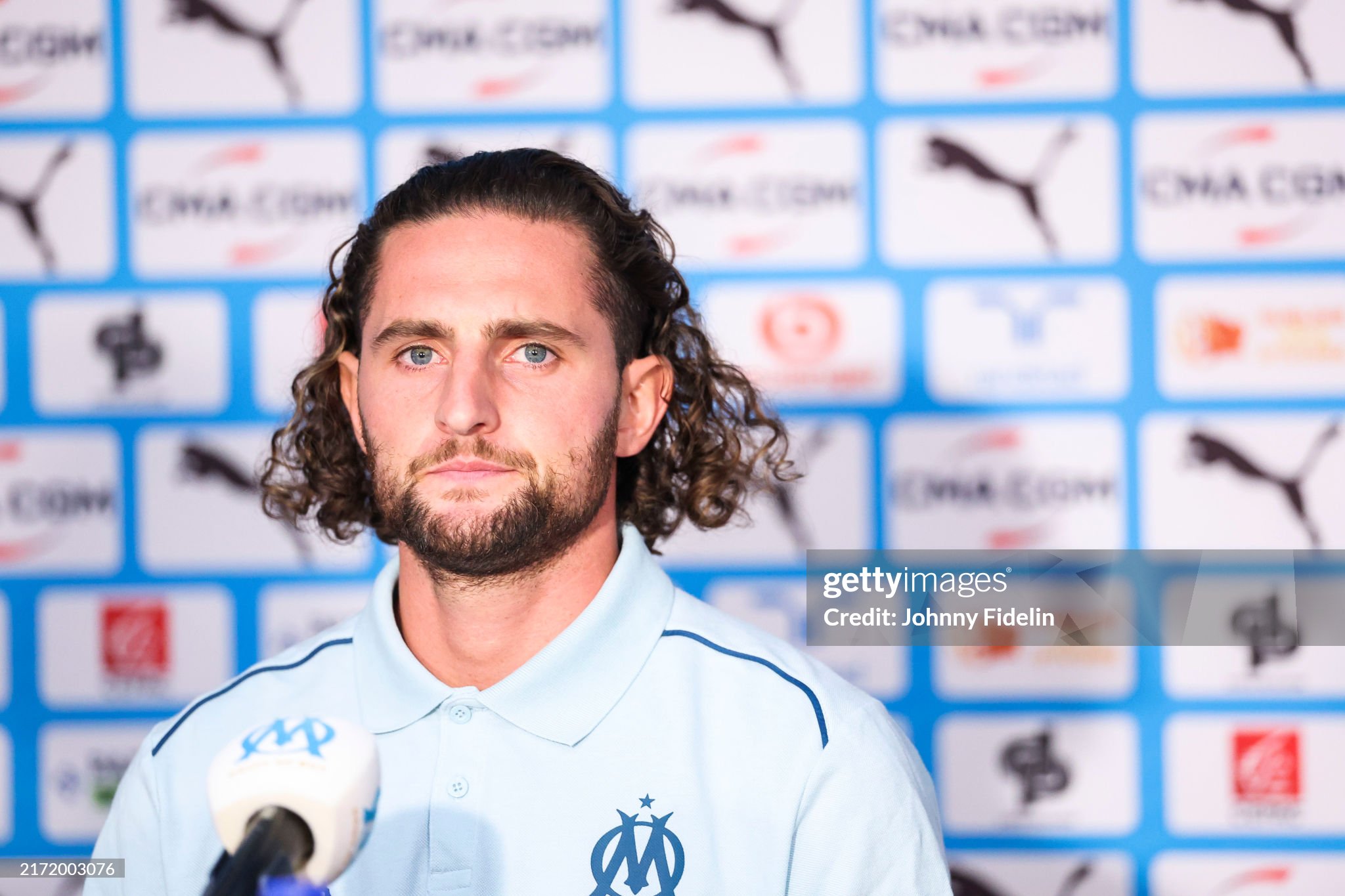
The air at Olympique Marseille is rarely calm, but a recent locker-room fracas has escalated into a full-blown melodrama, pitting the club`s new Italian coach, Roberto De Zerbi, against star midfielder Adrien Rabiot and his famously assertive mother-agent. What began as a disciplinary action has now spiraled into a public war of words, with Rabiot`s future at the club hanging precariously in the balance.
The Unsettling Incident: A Bar Brawl in the Dressing Room
The spark that ignited this blaze was a physical altercation between Adrien Rabiot and teammate Rowe. While the precise details of the exchange remain somewhat shrouded in the usual footballing opacity, De Zerbi`s blunt assessment painted a vivid picture: “A bar fight, an English pub brawl.” Such incidents, while not unheard of in the high-pressure environment of professional sports, typically demand swift and decisive action.
For De Zerbi, the response was clear: suspension. This was not a move taken lightly, but one deemed absolutely necessary in consultation with club president Pablo Longoria and sporting director Mehdi Benatia. “If in any workplace, two employees fight in front of their bosses, there are only two solutions: suspension or dismissal,” De Zerbi stated unequivocally. The fact that “even our bodyguards had to intervene” underscores the gravity of the situation.
De Zerbi`s initial hope was for immediate contrition. He anticipated Rabiot returning with “ears lowered,” offering a sincere apology that would allow the situation to normalize. This, he believed, would re-establish the hierarchy and discipline vital to any functioning team. However, the anticipated humility was conspicuously absent, at least initially.
The Agent`s Intervention: Adding Fuel to the Fire
Just as the dust might have begun to settle, Rabiot`s mother, Véronique Rabiot – also his long-time agent and a formidable figure in her own right – launched a scathing public attack on De Zerbi. She accused the coach of “betrayal” and “incoherence,” reportedly claiming he “barks” in the dressing room and questioning his integrity. This intervention, rather than de-escalating the conflict, poured gasoline on the embers.
De Zerbi, visibly exasperated, addressed these accusations directly in a recent press conference. He vehemently denied her claims, pointing out his history with Rabiot. “She said things that were not true,” he retorted, recalling how he had made Rabiot captain in Paris and even shielded him from angry fans. He also distinguished Rabiot`s situation from past disciplinary actions, such as that involving Greenwood, emphasizing that Rabiot`s issue was one of workplace conduct, not personal affairs.
A Paternal Scolding and a Glimmer of Hope (Almost)
Interestingly, despite the public spat and the perceived defiance, De Zerbi revealed a more personal dimension to his approach. Rabiot finally spoke to him, expressing regret but also believing the punishment was too severe. “He only came to talk to me today,” De Zerbi recounted, adding, “But I spoke to him like a father. If I had been his father, I would have done the same. I gave him paternal advice, and we will see what he does with it.” This offers a rare peek into the often-impersonal world of elite football, showcasing a coach attempting to blend stern discipline with a touch of personal guidance.
De Zerbi even spoke of his genuine affection for Rabiot, going so far as to claim he had shown “more attention for his son than for others,” and even offered Rabiot his own home in Aix-en-Provence, while he would stay in a hotel. Such gestures, if true, highlight the coach`s genuine desire to mend the relationship, at least before the public acrimony intensified.

The Fallout: Rabiot on the Market, Marseille`s New Strategy
However, the maternal intervention and the protracted nature of Rabiot`s apology seem to have pushed the situation past the point of easy return. De Zerbi explicitly stated, “Now Rabiot is on the market.” While he conceded that a definitive split was never the club`s initial intention, the current environment makes reconciliation a formidable task.
For Olympique Marseille, this means a significant shift in their transfer strategy. Losing a player of Rabiot`s caliber will undoubtedly leave a void, but De Zerbi, ever the pragmatist, is already looking ahead. “It`s not easy to play without a player of Rabiot`s level, but we will try to complete the squad,” he affirmed, indicating expectations of “5-6 new signings” before the transfer window closes. This is a clear signal that the club is prepared to move on, prioritizing internal order over individual star power.
Beyond the Brawl: A Clash of Modern Football Ideologies
This saga is more than just a dressing-room spat; it`s a microcosm of the challenges facing modern football. It pits a coach`s authority and a club`s need for discipline against player power, often amplified by influential agents. De Zerbi`s “courageous decision,” as he described it, to uphold clear rules in a major club, regardless of the player`s profile, sends a strong message. It suggests a philosophy where team cohesion and respect for the institution trump individual egos and external pressures. One might even suggest it`s a refreshing, if somewhat old-fashioned, stance in an era often defined by player-centric narratives.
For Rabiot, this is a moment of professional reckoning. Will he find a new club that can accommodate his talent and his entourage, or will this episode serve as a harsh lesson in accountability? For Marseille, it`s a test of resilience and a commitment to the vision of their new coach. The beautiful game, it seems, continues to play out its most dramatic scenes not always on the pitch, but often in the complex human dynamics behind the scenes.

